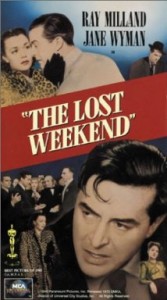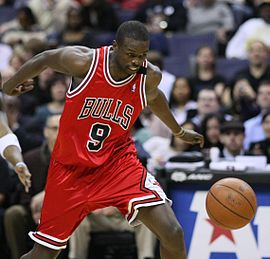 Hey, how about those road teams in the playoffs, hunh?
Hey, how about those road teams in the playoffs, hunh?
It was a lost weekend that would have made Ray Milland proud.
I spent huge chunks of Saturday and Sunday at an AAU tournament and missed several games. When I finally got home and turned on the TV, I wished I was back at the AAU tournament.
If you didn’t watch the NBA playoffs this weekend, you didn’t miss much. All eight road teams lost Game 1, the first time that has happened since 2004. In that season, three first-round series ended in sweeps, four more ended in five games and the lone series that went the distance saw the home team win every game.
This weekend’s road teams lost by an average of 16 points, making it hard to tell whether they didn’t show up or couldn’t wait to get home. The Houston Rockets, who don’t play Oklahoma City again until Wednesday, actually did go home after Sunday night’s debacle.
The three games that aired on TNT on Sunday were decided by a combined 69 points. Yes, We Know Drama, and This Isn’t It.
And the road team that made the best showing may have the worst road ahead. The Golden State Warriors lost at Denver on a last-second basket, then found out that they have lost All-Star forward David Lee for the rest of the season with a hip injury.
So should you have an itchy trigger finger on the remote, ready to click at a moment’s notice to an NFL Draft Preview show or “Mad Men” or – heaven forbid – baseball?
No, silly. Show a little bit of patience and remember a pair of postseason axioms.
1. A series doesn’t really start until the higher seed loses a game. This is often misstated as “until the home team loses a game,” which clearly isn’t true. If Golden State loses Game 2 at Denver on Tuesday, then goes home and loses Game 3 on Friday, the series is over without ever really starting.
But if the Nuggets win Game 2 at home but lose Game 3 on the road, then we have a rather compelling Game 4 with a lot at stake. If Denver wins, it can close out in five. If Golden State wins, it has momentum and confidence as it hits the road again. Which leads us to …
2. Before a lower seed can win a series, it has to make it a long series. Since the first round went to a best-of-seven format in 2003, only one lower-seeded team has advanced in five games or less – the 2009 Dallas Mavericks, who thoroughly capitalized on the absence of Manu Ginobili and took out the San Antonio Spurs in five.
Since 2003, however, 15 lower-seeded teams have been able to break through and win a first-round series, including two in each of the last four years. (That does not include the 2006 Los Angeles Clippers, who were the sixth seed but had home court and beat Denver.)
There’s two ways for a lower-seeded team to prolong a series. The most prevalent is to win one of the first two games on the road, the way eighth seeds Philadelphia and Memphis did in each of the last two years. The other is to win Game 4 at home, even the series and turn it into a best-of-three, the way Washington did to Chicago in 2005 or Utah did to Houston in 2007.
So don’t touch that clicker just yet. Yes, some of these series are over already. But some haven’t even begun.
Among this weekend’s losers, perhaps two or three have a chance of turning things around. Let’s take a look.
MILWAUKEE BUCKS: Forcing 19 turnovers and still losing by 23 wasn’t a really good sign. After Brandon Jennings and Monta Ellis, their next-highest scorer had six points. Things don’t look promising.
BOSTON CELTICS: It’s probably a fair assumption that they won’t have another 25-point half, their lowest in 592 all-time postseason games. And it’s probably a fair assumption that Kevin Garnett and Jason Terry won’t combine for eight points on 4-of-17 shooting again. The Celtics actually did a good job of turning Carmelo Anthony and J.R. Smith into volume shooters. They have to find more scoring and do a better job of taking away the three-ball. But I still think this is a long series.
ATLANTA HAWKS: They have a huge issue with Indiana’s Paul George, who is way too athletic for Kyle Korver and too big for DeShawn Stevenson, who may be the better long-term solution. Another option could be using Josh Smith on George, but that puts Johan Petro or Ivan Johnson on the spot against Roy Hibbert or David West. And if the Hawks want to extend this series, they have to push back; 14 free throws and minus-16 on the boards won’t cut it.
CHICAGO BULLS: They have problems on both sides of the ball, although I imagine some of  the defensive issues will be resolved by tip-off tonight. Expect Luol Deng to be more involved offensively than he was in Game 1. But it doesn’t look like they are going to get anything out of Richard Hamilton, Joakim Noah could tap out at any time with his sore foot and they are physically overmatched at point guard. The Bulls also had a limited Joakim Noah and no Derrick Rose last year vs. Philadelphia, and Brooklyn is a much better team.
the defensive issues will be resolved by tip-off tonight. Expect Luol Deng to be more involved offensively than he was in Game 1. But it doesn’t look like they are going to get anything out of Richard Hamilton, Joakim Noah could tap out at any time with his sore foot and they are physically overmatched at point guard. The Bulls also had a limited Joakim Noah and no Derrick Rose last year vs. Philadelphia, and Brooklyn is a much better team.
HOUSTON ROCKETS: Aside from James Harden and underrated rookie Patrick Beverley, they looked abolutely terrified in Game 1 with rushed shots, fumbled passes and gambling, unprincipled defense. But even if some of their postseason novices settle in, the Rockets still have a big dilemma with their lack of productivity at power forward. During the season, they often went small with Chandler Parsons and Carlos Delfino at the forward spots. The size of Thunder forwards Serge Ibaka and Kevin Durant make that a recipe for disaster.